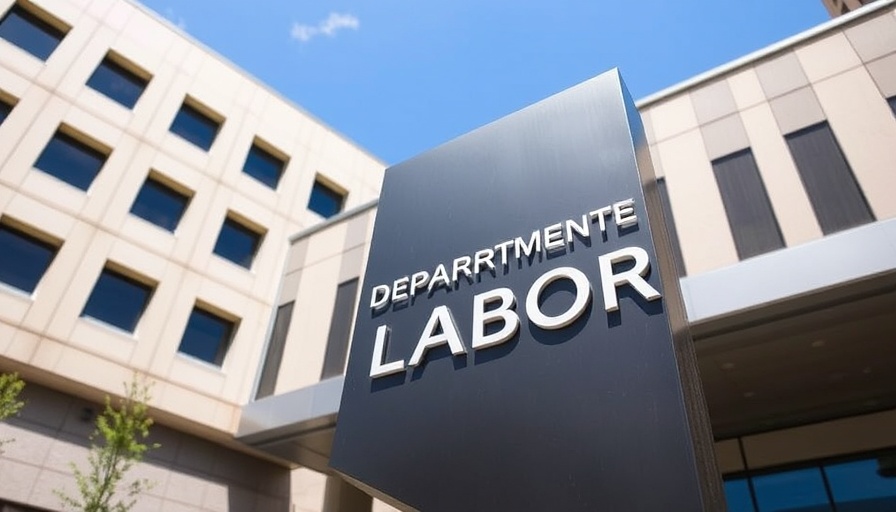
How Trump's Criticism of Labor Statistics Created Market Uncertainty
In a surprising turn of events, former President Donald Trump voiced scathing criticisms towards the U.S. Bureau of Labor Statistics (BLS), which sent ripples of concern through the investment community. Trump's comments come as part of a broader skepticism he has directed towards government data and institutions, often labeling statistics he disagrees with as misleading. The BLS, responsible for gathering crucial economic data impacting everything from employment rates to inflation forecasts, is vital for investors making informed decisions.
Understanding the Impact on Investors and Businesses
When a figure like Trump attacks the credibility of the BLS, it raises pressing questions about market trustworthiness. Investors rely heavily on economic indicators supplied by such agencies to make strategic decisions regarding venture capital funding, mergers and acquisitions, and corporate governance. If these indicators are perceived as unreliable, it can lead to nervousness among investors, resulting in volatile market reactions.
Historical Context: Labor Statistics and Market Reactions
Historically, government estimates of employment and income have played pivotal roles in shaping economic forecasts and business growth strategies. During previous market downturns, inaccurate or perceived inaccurate statistics have exacerbated fears and instigated quick sell-offs in the stock market. This recent criticism by Trump could provoke similar reactions, particularly in fragile sectors like Silicon Valley startups, which heavily depend on stable economic predictions to attract financing.
The Broader Implications for Business Leadership
This wave of criticism not only affects investors but also poses challenges for business leaders who must navigate the uncertainty. Well-regarded companies often use BLS data to inform their corporate culture and labor practices. As Trump continues to challenge the validity of such statistics, they may have to adapt to protect their business interests and reputations amidst shifting perceptions in the market.
Voices from the Startup Ecosystem
Feedback from Bay Area entrepreneurs illustrates deep concern within the startup ecosystem. Founders express the importance of reliable economic data and warn that any loss of confidence in the BLS could lead to hesitance in making significant capital investments. The ripple effect on venture capital funding may stifle innovation and sustainability in business practices, reflecting a need for stability more than ever.
Employment Trends: A Critical Component of Economic Forecasts
Employment trends, as reported by the BLS, influence various business decisions, from hiring to market expansion plans. If stakeholders begin doubting these reports due to political rhetoric, companies risk stalling their growth trajectories. Corporate partnerships, which are especially sensitive to current economic conditions, may also be jeopardized if investors lack faith in labor market statistics.
Looking Ahead: Predictions on Economic Stability
Experts predict that if the skepticism surrounding the BLS persists, it may require further legislative clarity on business regulations to restore confidence among investors. Government intervention might become necessary to reaffirm the importance of accurate and reliable economic data. Until such measures are taken, financial market updates will likely reflect ongoing trepidations concerning Trump’s comments and their implications for business opportunities.
Conclusion: Navigating the Future
The conversation around labor statistics and their role in shaping economic outlooks is more crucial than ever. For investors and business leaders alike, understanding the ongoing dialogue can foster better decision-making strategies. As circumstances evolve, staying informed on employment laws, market analysis, and business growth tips will be pivotal for success in the uncertain economic landscape ahead.
 Add Row
Add Row  Add
Add 



Write A Comment